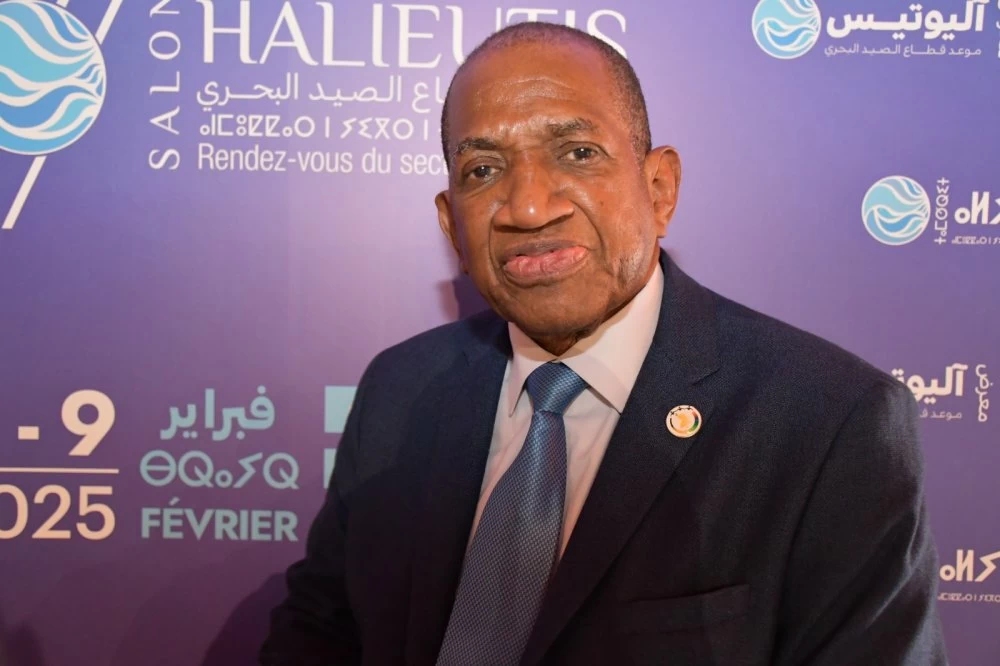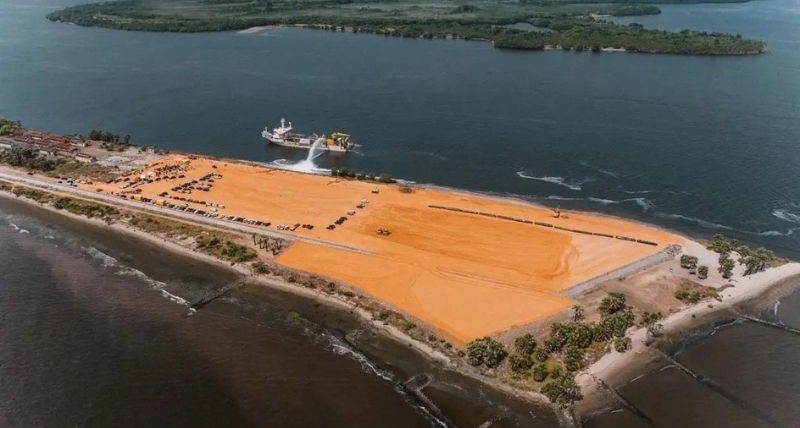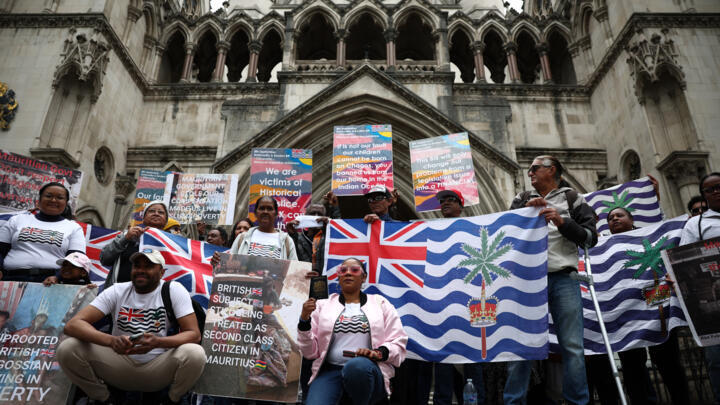On the sidelines of the 7th edition of the Halieutis Fair in Agadir, Kabiné Komara, former Prime Minister of Guinea and international development expert, highlights Dakhla’s model as a benchmark for blue economy in Africa. In this interview, he discusses the technological advancements in Morocco’s fisheries sector, the challenges related to the sector’s resilience to climate change, and the importance of regional cooperation to export Dakhla’s success to other African countries.

The 7th Edition of the Halieutis Fair Highlights Research and Innovation. What Are, in Your Opinion, the Most Promising Advancements That Could Inspire Other African Regions?
Le Matin: This fair has showcased Morocco’s technological advancements and its fishing system. Firstly, there is the stock monitoring system, which uses acoustic sensors and sonars to locate fish schools and avoid accidental catches. Next, drones and satellites play a key role in monitoring fishing areas and combating illegal fishing. Modernizing the fleet is also essential, with vessels equipped with advanced GPS and maritime communication systems that optimize the processing chain and reduce losses. Additionally, the transformation infrastructure is now automated, allowing for better valorization of marine products. Finally, the integration of renewable energies is a major advancement: since fishing is highly energy-intensive, equipping boats and facilities with solar and low-carbon systems represents a true revolution in the sector.
Among the recommendations in your report to strengthen the resilience of Morocco’s blue economy, which one is the most urgent to implement in the face of climate change and illegal fishing challenges?
One of the major challenges is first and foremost the legal aspect. The European Union has recently required that all products from the Sahara be labeled separately from the rest of Morocco. This situation is concerning and forces Morocco to explore alternatives, either by negotiating amendments to this decision or by developing new markets. Furthermore, climate change presents an increasing threat. It is essential to enhance surveillance and identify areas where fish stocks are migrating in order to adapt fishing practices. Morocco must also invest more in research to anticipate these shifts and ensure sustainable marine resource exploitation.
Dakhla’s blue economy is cited as a model to replicate in Africa. What are the first steps to export this success and mobilize African partners?
Dakhla is an impressive example of rapid development. The city has become a fisheries and ecological hub, with modern infrastructures, strong technological integration, and a focus on research and innovation. Morocco could share this experience with other African countries through the West African Fisheries Commission (CSRP), an organization that brings together several coastal states. My hope is that Morocco will join this commission and take a leading role by sharing its expertise. This would allow for the training of sector players, equipping member countries with surveillance tools, and improving the fight against illegal fishing. The experience gained in Dakhla can thus serve as a lever to strengthen the blue economy across the continent.
Source: lematin



